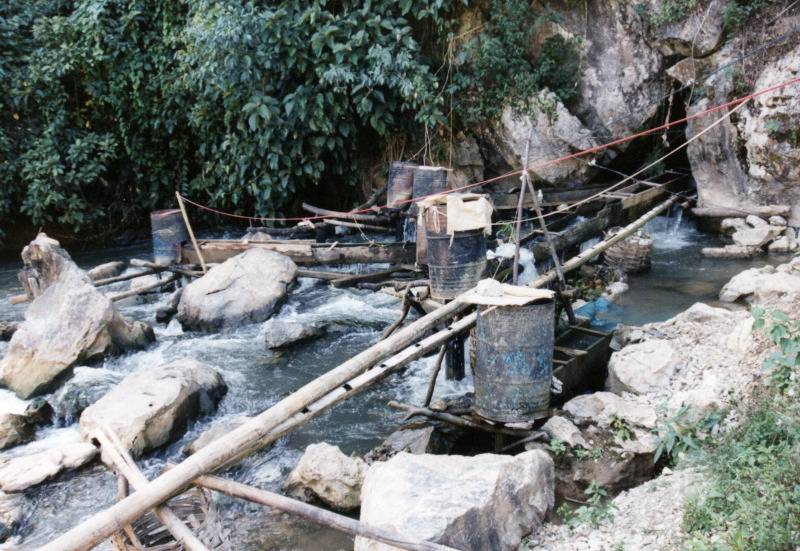(ecologists talking to politicians, or) just keep banging your head against the wall Im sure you'll make progress
spent 3 days ish amongst other researchers, PhD-students, so on, in the fields of zoology, ecology, related.
a Lot of that time was spent on How to change things, as a scientist ... as in, how we are "supposed to" speak to Politicians and Policymakers, who will then listen to us, and change things.
(they made us look at the Horrendogram , which you can look at below... yeah... )

so the whole session was based on, Scientist (has to remain objective and apolitical) → policymaker → change
hello am I going crazy? We are Ecologists, Environmental Scientists. it is abundantly clear that politicians and policymakers do not listen to us nor change things (in good ways). Idon't give a shit about how we're supposed to talk to them and "advise" them. there are people, impacted by these things now and in the past and in the future, who want to help us, help their land, their health. We don't need a political middleman-mediator. Scientists, academics, we need to get serious about how to engage with grassroots movements, with non-academic non-politicians, to people who will do the moving and shaking.
one joke about how local-communities are some of the last people oft consulted with-regards-to various environmental policies. That was the only time local communities were mentioned, by-the-way.
...
The third section of The Geopolitics of Green Colonialism is, well, what could be done about it (what is already being done about it)? This section contains the essay Degrowth, Climate Emergency, and the Transformation of Work by Luis Gonzalez Reyes, which I found to be extremely refreshing. In brief, the essay discusses the issue that many of us are tangled up in unsustainable, large-scale systems and infrastructure, trying to get the government (and/or a corporation) to listen to us since they control that infrastructure. As an example, my flat gets electricity from a nationwide energy company, and so my ability to avoid using fossil fuels relies on that company shifting away from fossil fuels. If they don't do it, then I have to choose between using fossil fuels, or not using electricity, both options having problems.
The essay proposes that communities develop community-owned infrastructure, so that they maintain and control the things they need. This infrastructure would be very specific to their environment — solar may not work well here as energy use is highest in winter, which has very few daylight hours... but there are steep slopes and lots of water, so micro-hydroelectric might work! It would probably be much smaller scale too, which excludes some things like nuclear power plants or offshore wind or other huge investments. but even if those big things still exist and are controlled by something like a government or corporation, our reliance on them would be reduced.

( a micro hydro setup in Vietnam. In the caption: "Micro Hydroelectric generation in NW Vietnam village. Set-up involves bamboo and wooden sluices channelling water into oil drums fitted with hand-carved bamboo turbines. Electricity generation was via motorbike alternators. Interestingly, high-tension power lines ran through the middle of the village, but clearly were not used by the villagers." exactly what I'm talking about! image taken by user Shermozle on wikimedia. )
and I have to ask, how are we expecting this to feel within-reach to communities if scientists, engineers, & people with training and know-how about what might be done just kind of... hide under a rock and talk to politicians only. Politicians, the people who are literally in the way most of the time.
(thanks Low Tech Magazine for the sanity)
...
what is it, exactly, that compels academic conferences to keep having these talking-to-policymakers workshops without having talking-to-anyone-else workshops as well? Perhaps a remnant of the traditional role of science, where academia was (as is still) very much walled-off from the general public. Also maybe many scientists feeling unsure, not-confident, about talking to people in general (how many of us are autistic?), many of us staying in academia to avoid too much people-time. Maybe it's not easy to give a talk on something where there isn't a script, or guidelines, like there is for science-policy chatter.
none of this is an excuse, mind. A lot of academics have their head up their ass, Ohh I study objective things I am a-political (I am a straight cis abled white man nearing retirement).
"I work in sustainable fisheries" ... followed by (joke at the expense of fisherfolk). Shit man maybe there's a reason they're not excited to collaborate with you.
some day I am going to bite a professor
...
thanks for reading!🪱🦀
Atom feed ; RSS feed
check out my reading list while you're here :)